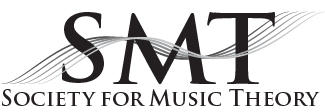Copyright © 2004 Society for Music Theory
6.2.1 Key Profiles
[1] The Krumhansl & Kessler major and minor key profiles (see Figure 6.2.1a) were derived from experimental measures. In the experiments, listeners were asked to rate each scale degree according to how well it "fit" in a major or minor context. In general, listeners rated diatonic tones more highly than chromatic tones. Among the diatonic tones, the highest rated were the notes of the tonic triad.(83)
Figure 6.2.1a. The Krumhansl & Kessler major- and minor-key profiles.
|
[2] Huron’s study(20) found that doubled scale degrees fit the Krumhansl-Kessler profiles very closely. However, Huron did not control for spacing, inversion, and other confounding factors. Our own results, which control for these factors, give only mixed support to Huron’s interpretation. (See §6.2.) Like the Krumhansl-Kessler profiles, our results give low scores to the chromatics and leading tone. But unlike the Krumhansl-Kessler profiles, our results do not give the highest scores to the notes of the tonic triad.
◄
Back to §6.2 (Scale-Degree Results) |
Copyright Statement
Copyright © 2004 by the Society for Music Theory. All rights reserved.
[1] Copyrights for individual items published in Music Theory Online (MTO) are held by their authors. Items appearing in MTO may be saved and stored in electronic or paper form, and may be shared among individuals for purposes of scholarly research or discussion, but may not be republished in any form, electronic or print, without prior, written permission from the author(s), and advance notification of the editors of MTO.
[2] Any redistributed form of items published in MTO must include the following information in a form appropriate to the medium in which the items are to appear:
This item appeared in Music Theory Online in [VOLUME #, ISSUE #] on [DAY/MONTH/YEAR]. It was authored by [FULL NAME, EMAIL ADDRESS], with whose written permission it is reprinted here.
[3] Libraries may archive issues of MTO in electronic or paper form for public access so long as each issue is stored in its entirety, and no access fee is charged. Exceptions to these requirements must be approved in writing by the editors of MTO, who will act in accordance with the decisions of the Society for Music Theory.
This document and all portions thereof are protected by U.S. and international copyright laws. Material contained herein may be copied and/or distributed for research purposes only.
Prepared by Brent Yorgason, Managing Editor and Tahirih Motazedian, Editorial Assistant


